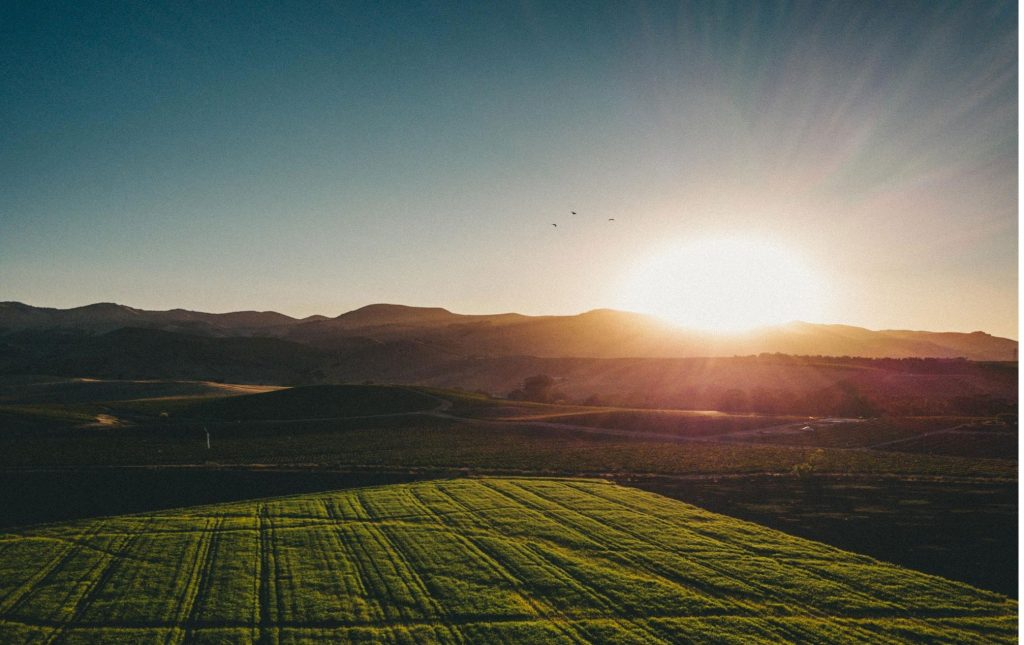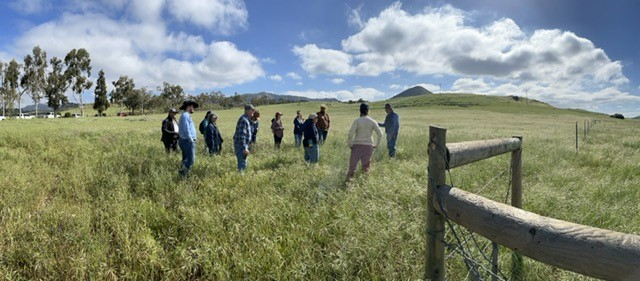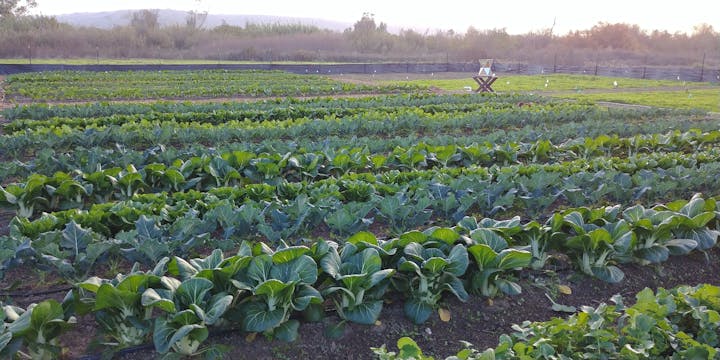Resources
Last Updated: 12/16/2024
The Resource Conservation District of Greater San Diego County (RCD) is a governmental special district with a mission to protect, conserve, and restore natural resources through information, education, and technical assistance programs. The RCD manages the Tijuana River Valley Community Garden and Wild Willow Farm & Education Center. We prioritize the health and safety of the staff, garden members and visitors in these spaces.
Air Quality
Cross-border pollution is a long-standing issue in the Tijuana River Valley. The County of San Diego’s South Region public health-focused website offers links to frequently asked questions, educational materials, local data, and information about other agencies monitoring and investigating health concerns over air and water quality. Other agencies are also providing information – some of those resources are linked below.
We acknowledge our elected officials and the county, state, and federal environmental and health agencies for their collaborative efforts with researchers from UC San Diego and San Diego State University. Together, they are prioritizing cross-border pollution research and supporting the South County community in exploring potential health impacts.
- Environmental Odors and Your Health
- South Bay Regional Health Concerns
- San Diego County Air Pollution Control District
- Check Daily Air Quality Reports for your Area
- Stay up to date with specific information about the Tijuana River Valley
- Make a Complaint About Air Quality or Smell – Download the San Diego County Air Pollution Control District App Here
- Recording of San Diego County Air Pollution Control District Tijuana River Valley Community Meeting - September 18th, 2024; discussion regarding this topic starts at 25 minute mark
- Tijuana River Watershed Updates from the United States Environmental Protection Agency (EPA)
- Here is a letter from the EPA with information about new infrastructure being built to address the waste water issues – September 20, 2024
- If you have more questions, please email: ag@rcdsandiego.org.
- South Region Assessment for Chemical Exposure (ACE) - If you are a South Bay resident and/or regularly outside in the region, this 35 minute survey is a way to gather information about the impact of the release of a substance or chemical on an individual. Data is being collected by UC San Diego.
Flood Preparedness
Winter (December - February) is the rainy season and so we want to share resources and information that can help you prepare in the event of a flood. The Tijuana River Valley Community Garden is located in a floodplain, so under certain weather conditions, flooding may occur. Rainy weather is not always a cause for concern - most rainstorms will not cause flooding; however, it is important on the day of a storm to monitor how intense the storm could be. If heavy rains cause the Tijuana River to overflow, contaminants that are unsafe for people to come in contact with are carried in the floodwater. Historically, any of these conditions could trigger a flood in the Tijuana River Valley.
Intense Coastal Rain: 1 inch of rain on the coast in less than 12 hours. You can check the 10-Day Forecast at this link for the station in Imperial Beach.
Intense Mountain Rain: 1.5 inches of rain in the mountains in less than 12 hours. You can check the 10-Day Forecast at this link for the station in Tecate.

River Depth: Flooding likely when river depth (stage) is 44 ft or more. You can see the depth (stage) of the river at this link.

Please keep in mind that the forecast tools for rain can be inaccurate, but still useful to use as a reference. We will do our best to provide advance notice of a rain event that we predict could cause flooding. In the event of a flood, we will keep farmers, gardeners and surrounding community members posted on safety precautions to reduce contact with contaminated flood waters.
If you have any additional questions or need support, please reach out to us at: ag@rcdsandiego.org
________________________________________________________________________________________________________________________
El Distrito de Conservación de Recursos del Gran Condado de San Diego (RCD) es un distrito gubernamental especial que tiene la misión de proteger, conservar y restaurar los recursos naturales mediante programas de información, educación y asistencia técnica. El RCD gestiona el Jardín Comunitario de Tijuana River Valley y la Granja y Centro Educativo Wild Willow. Priorizamos la salud y la seguridad del personal, los miembros del jardín y los visitantes de estos espacios.
Calidad del Aire
La contaminación transfronteriza es un problema que existe desde hace mucho tiempo en Tijuana River Valley. El sitio web de la Región Sur del condado de San Diego centrado en la salud pública ofrece enlaces a preguntas frecuentes, material educativo, datos locales e información sobre otros organismos que supervisan e investigan los problemas de salud relacionados con la calidad del aire y del agua. Otros organismos también facilitan información, y los enlaces de algunos de esos recursos pueden consultarse abajo.
Agradecemos a nuestros funcionarios electos y a los organismos de medio ambiente y sanitarios del condado, estatales y federales por sus esfuerzos de colaboración con los investigadores de la Universidad de California, San Diego y la Universidad Estatal de San Diego. Juntos, están priorizando la investigación de la contaminación transfronteriza y apoyando a la comunidad del condado Sur en su tarea para conocer los posibles impactos sobre la salud.
- Los olores del ambiente y tu salud
- Preocupaciones regionales por la salud en el sur de la bahía
- Distrito de Control de la Contaminación del Aire del Condado de San Diego
- Grabación de la reunión comunitaria del Distrito de Control de la Contaminación del Aire del Condado de San Diego para Tijuana River Valley: 18 de septiembre de 2024; la discusión sobre este tema comienza en el minuto 25
- Actualizaciones de la Agencia de Protección Ambiental de Estados Unidos (EPA) sobre la cuenca del Río Tijuana
- Aquí tienes una carta de la EPA con información sobre las nuevas infraestructuras que se están construyendo para resolver los problemas de las aguas residuales - 20 de septiembre de 2024
- Si tienes más preguntas, envía un correo electrónico a: ag@rcdsandiego.org.
Preparación para Inundaciones
Invierno (diciembre a febrero) es la temporada de lluvias y queremos compartir recursos e información que pueden ayudarle a prepararse en caso de una inundación. El Jardín Comunitario Tijuana River Valley se encuentra en una llanura aluvial, por lo que con ciertas condiciones climáticas, pueden ocurrir inundaciones. El clima lluvioso no siempre es una causa de preocupación. La mayoría de las tormentas de lluvia no causarán inundaciones. Sin embargo, es importante el día de una tormenta monitorear qué tan intensa podría ser la tormenta. Si las fuertes lluvias causan el desbordamiento del Río Tijuana, los contaminantes que no son seguros cuando tienen contacto con las personas se transportan en el agua de la inundación. Históricamente, cualquiera de estas condiciones podría ser la causa de una inundación en el Tijuana River Valley.
Lluvia costera intensa: 1 pulgada de lluvia en la costa durante menos de 12 horas. Puede consultar la previsión a 10 días en este enlace para la estación de Imperial Beach.
Lluvia intensa en las montañas: 1.5 pulgadas de lluvia en las montañas durante menos de 12 horas. Puede consultar el pronóstico a 10 días en este enlace para la estación de Tecate.

Profundidad del río: Inundaciones probables cuando la profundidad del río (etapa) es de 44 pies o más. Puede ver la profundidad (etapa) del río en este enlace.

Tenga en cuenta que las herramientas de previsión de lluvia pueden ser imprecisas, pero aun así son útiles como referencia. Haremos todo lo que podamos para avisar con antelación de las lluvias que preveamos que puedan causar inundaciones. En caso de inundación, mantendremos informados a los agricultores, jardineros y miembros de la comunidad circundante acerca de las precauciones de seguridad para reducir el contacto con aguas de inundación contaminadas.
Si tiene más preguntas o necesita ayuda, póngase en contacto con nosotros en: ag@rcdsandiego.org
The Southern California Soil and Water Hub (SoCal Hub) currently includes the following Resource Conservation Districts but may grow to include others: RCD of Greater San Diego County, Mission RCD, Upper San Luis Rey RCD, Inland Empire RCD, and Coachella Valley RCD. Agriculture in Southern California faces many challenges, particularly around rising costs of water and land, as well as opportunities around developing urban markets. RCDs in the region provide critical conservation assistance helping to ensure that working lands can remain in production instead of conversion to non-irrigated or un-grazed uses or urbanization. Given the region’s shallow topsoil and limited rainfall, regenerative practices are rapidly gaining interest. The region already has a large and growing percentage of small farms and Certified Organic growers. The SoCal Hub serves to coordinate and amplify the efforts of individual RCDs in the region in order to accelerate adoption of soil and water conservation practices. The Carbon Cycle Institute (CCI) and California Association of Resource Conservation Districts (CARCD) are actively supporting Resource Conservation Districts (RCDs) across the state in establishing carbon farming and soil health programs and seven Regional Carbon Farming Hubs, including the SoCal Hub, through training and education, fund development, regional planning, and other capacity building efforts.
For questions about the SoCal Hub, email Hub Coordinator Rachel Petitt (rachel.petitt@rcdsandiego.org) or call Rachel at (323) 475-8580.

- This conservation assessment plan highlighted how carbon farming practices could significantly decrease carbon emissions and increase soil carbon, while providing multiple farm co-benefits for a 3,100-acre ranch operation.
- Carbon Cycle Institute: CCI works to advance carbon cycle solutions: working models of alternative practices, technologies and economic value chains that can produce food, fiber, and flora in ways that improve the environment and are climate- and carbon-beneficial.
- Marin Carbon Project: Seeks to enhance carbon sequestration in rangeland, agricultural, and forest soils through applied research, demonstration and implementation in Marin County.
- We have created a chart to list the plants in the hedgerow at the Tijuana River Valley Community Garden, as well as their bloom period and flower color.

- Check out this guide on grazing management for rangelands.
- The detailed plan developed by Liz Kellogg of Tierra Data that has guided the prescribed grazing practices at Rancho Jamul.

Monarch and Pollinator Conservation:
- Butterfly Farms: Education and conservation organization and nursery all on one site. Come visit their butterfly free flight house and buy pollinator plants for your garden.
- Monarch Joint Venture: A national partnership of federal and state agencies, non-governmental organizations, businesses, and academic programs working together to conserve the monarch butterfly migration.
- Monarch Watch: A wealth of information about monarchs – creating habitat, citizen science, migration, biology, and more.
- The Xerces Society: An organization dedicated to the protection of wildlife through supporting invertebrates. They offer information and resources about issues affecting monarchs and other pollinators and what you can do to help these vital insects.
Native Plant Resources
- California Native Plant Society – San Diego Chapter: An organization dedicated to increasing understanding, appreciation and conservation of California’s fascinating variety of native plants in their natural environment and in horticultural settings. “Gardening with Natives” and “How-To Brochures” links on their website have lots of info on native plants and butterflies.
- Native West Nursery: A wholesale nursery specializing in growing California native plants. The nursery holds public plant sales four times per year.
Milkweed Seed Sowing and Plant Care Instructions:
Milkweed Care:- Our leaflet on how to sow and care for milkweed seeds.
- A quick guide to planting milkweed plants.
Creating Pollinator Habitat:
Establishing Pollinator Meadows from Seed:- A guide from the Xerces Society on how to create your own pollinator meadow.
- Tips from Monarch Joint Venture on attracting monarchs (and other pollinators) to your yard.
- Monarch Waystations: A certification for gardens that provide the resources that monarchs (and other pollinators) need. By registering as a Monarch Waystation, you join a national network of pollinator habitats.
- Check out this easy guide on how to create pollinator habitat in your yard.
Harvesting Elderberries from a Native Hedgerow
- An in-depth look at the ecological, cultural and economic benefits of including elderberries in a native hedgerow or wind break.
- Watch this video (English and Spanish) on best harvesting and food safety practices for elderberry producers.
Citizen Science Programs:
- Journey North: a country-wide monarch monitoring program. Report your monarch sightings and check out their interactive map of sightings so far this year!
- An overview of monarch citizen science contributions and programs across the United States, including information on how to get involved. (link to document title Monarch citizen science overview)
- RCD Milkweed for Monarchs iNaturalist project: join this project and contribute observations of monarchs in your gardens.

- Collective School Garden Network (CSGN): Information and resources for planning, planting, teaching in, and sustaining a school garden.
- Kids Gardening: Lots of gardening tips, educator resources, and grant sources.
- Life Lab: A wealth of information and resources for creating, sustaining, and teaching in a school garden.
- Master Gardener Association of San Diego: sign up to get a Master Gardener to support your school garden, and find info about grants for school gardens.
- We created this index of resources to connect teachers with classroom activity ideas to follow your watershed education presentation, resources for curriculum support including online video tools, local organizations leading the way to healthy water systems, and a listing of both in and out of the classroom field trip opportunities.
- Watersheds in San Diego County: Learn more about the ten watersheds in the county.
-
Preparing for Wildfire: valuable information about what to do before, during, and after a
wildfire emergency. -
Tree & Forest Health: learn more about the beetles infecting trees throughout the county and
what you can do to protect your property. - Fire & the Environment: resources that discuss the links between wildfire and climate change.
Please visit our YouTube Channel to view a variety of videos highlighting our programs and priorities. New videos are always being uploaded, so check back often.
- This beautiful video produced by the San Diego County Department of Parks and Recreation highlights the Tijuana River Valley Community Garden and the diverse and passionate gardeners who enjoy all it has to offer.
- Monarch Butterfly “Tag-and-Release” Event: North County students and elected officials enjoy a chance to get up close with Monarch Butterflies at this fun and informative event hosted by Butterfly Farms, the RCD, and U.S. Fish & Wildlife Service.
- See our Community Garden from a bird’s eye view! Drone footage of the TRV Community Garden – the largest community garden in the county – gives you a new perspective on its size and layout, including our recent expansion.
- Learn about our High School Conservation Speak-Off competition. This is a great opportunity for high schoolers to practice their public speaking skills and possibly earn up to $550!
- The vision of the Resource Conservation District and Fire Safe Council of San Diego County is to foster a fire safe / fire wise region that has developed through an ongoing course of public education, training, and community collaboration in project support.
- Learn more about the devastating Kuroshio Shot Hole Borer Beetle, in this important interview with our partner, UC Agriculture and Natural Resources Entomologist, Dr. John Kabashima, as he sheds light on how this pervasive beetle is destroying the trees in this beautiful region.
Here is a workbook with an overview of programs hosted in the San Diego County to support land owners and managers. Please take a minute to check out our Partners and learn more about the valuable work they are doing to improve the lives of residents in San Diego County.

